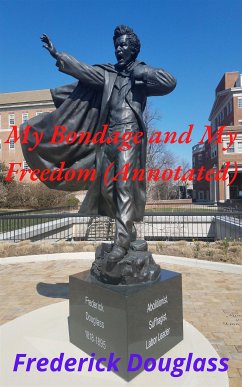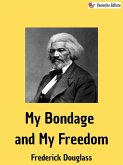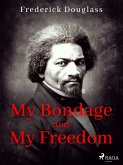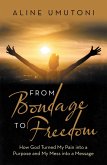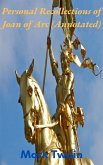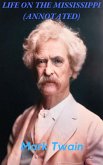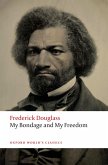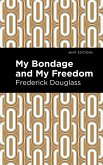This is the annotated version of the original ebook. This annotated version consists of a summary of 71100 words approximately written at the end of the ebook in Red Fonts. My Bondage and My Freedom is an autobiographical slave narrative written by Frederick Douglass and published in 1855. It is the second of three autobiographies written by Douglass, and is mainly an expansion of his first (Narrative of the Life of Frederick Douglass), discussing in greater detail his transition from bondage to liberty. Following this liberation, Douglass, a former slave, went on to become a prominent abolitionist, speaker, author, and publisher. In his foreword to the 2003 Modern Library paperback edition, John Stauffer writes: "My Bondage and My Freedom," [is] a deep meditation on the meaning of slavery, race, and freedom, and on the power of faith and literacy, as well as a portrait of an individual and a nation a few years before the Civil War. As his narrative unfolds, Frederick Douglass-abolitionist, journalist, orator, and one of the most powerful voices to emerge from the American civil rights movement-transforms himself from slave to fugitive to reformer, leaving behind a legacy of social, intellectual, and political thought. The 1855 text includes Douglass's original Appendix, composed of excerpts from the author's speeches as well as a letter he wrote to his former master. Frederick Douglass (born Frederick Augustus Washington Bailey; c.February 1817- February 20, 1895) was an American social reformer, abolitionist, orator, writer, and statesman. After escaping from slavery in Maryland, he became a national leader of the abolitionist movement in Massachusetts and New York, gaining notes for his oratory and incisive antislavery writings. In his time, he was described by abolitionists as a living counter-example to slaveholders arguments that slaves lacked the intellectual capacity to function as independent American citizens. Northerners at the time found it hard to believe that such a great orator had once been a slave. Douglass wrote several autobiographies. He described his experiences as a slave in his 1845 autobiography, Narrative of the Life of Frederick Douglass, an American Slave, which became a bestseller, and was influential in promoting the cause of abolition, as was his second book, My Bondage and My Freedom (1855). After the Civil War, Douglass remained an active campaigner against slavery and wrote his last autobiography, Life and Times of Frederick Douglass. First published in 1881 and revised in 1892, three years before his death, it covered events during and after the Civil War. Douglass also actively supported women's suffrage and held several public offices. Without his approval, Douglass became the first African American nominated for Vice President of the United States as the running mate and Vice Presidential nominee of Victoria Woodhull, on the Equal Rights Party ticket. Douglass was a firm believer in the equality of all peoples, whether white, black, female, Native American, or Chinese immigrants. He was also a believer in dialogue and in making alliances across racial and ideological divides, and in the liberal values of the U.S. Constitution. When radical abolitionists, under the motto "No Union with Slaveholders", criticized Douglass' willingness to engage in dialogue with slave owners, he replied: "I would unite with anybody to do right and with nobody to do wrong."
Dieser Download kann aus rechtlichen Gründen nur mit Rechnungsadresse in A, B, BG, CY, CZ, D, DK, EW, E, FIN, F, GR, HR, H, IRL, I, LT, L, LR, M, NL, PL, P, R, S, SLO, SK ausgeliefert werden.

